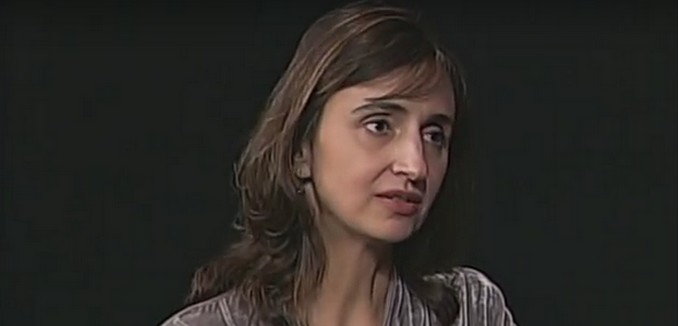While Iran has engaged in several conflicts since the Islamic Revolution in 1979, one it “has decidedly won is the media war” with the West, Roya Hakakian, a prominent Iranian-American Jewish author and journalist, wrote in an op-ed yesterday in The Forward.
Hakakian argued that foreign journalists frequently fall into the trap of writing feel-good stories about Iran for Western audiences, as she witnessed while working on a CBS segment about an Iranian political prisoner with the late Bob Simon in 1999. The piece was being produced at a time when Mohammad Khatami, a reputed moderate, was president of Iran.
Bob and the team went to Iran, but to my great dismay, they returned with a different piece: One about the 20th anniversary of the 1979 hostage crisis. It became a celebrated “good-news” segment, with a Peabody to boot, which made several points: The nation was done with the radicalism of its leadership and was openly outspoken about its disenchantment with the regime. They loved Americans and, with a few caveats, America too. All this was narrated over delectable meals and generous B-roll of trendy youth, especially of feisty, ravishing women, dressed in self-fashioned Western-style clothes and slipping hijab.
Hakakian also observed that Tehran granted The Forward permission to send its reporter, Larry Cohler-Esses, to Iran earlier this month with a strange stipulation: Cohler-Esses was instructed to request a letter of recommendation from the leaders of Iran’s Jewish community. Hakakian pointed out the impossible constraint the letter placed on Cohler-Esses:
The demand for a letter should have instantly alarmed the Forward, for it was made based on the bigoted notion that the Jews run a worldwide network which can instantly be activated. Why should an Iranian Jewish leader be asked to recommend an unknown journalist for a visa if not to generate a clear signal to the invested parties as to on whose credit he was getting in and what was expected of him to return with? The Jewish leader who vouched for the Forward was, it seems, mortgaging his freedom in the hopes that Cohler-Esses would not print what might have incited the ire of the regime. Has such a letter of recommendation ever been asked of, say, the Economist or Der Spiegel?
Hakakian wrote that, while Iran’s Jewish population has dwindled, its presence allows the Iranian regime to show “its capacity for tolerance.” By claiming that it “separate[s] the affairs of the Jews from those of the Zionists in Israel,” Hakakian argued, Tehran distinguishes itself from the surrounding Arab nations that expelled their own Jewish populations. She further noted that Hassan Rouhani, Iran’s current president, sent Rosh Hashanah greetings to Jews around the world and made a donation to a local Jewish hospital, though the “area’s Jews are long gone.”
These shows of tolerance, Hakakian observed, “have been made for the benefit of Western audiences,” and have helped the regime advance whatever policies it deemed important at the time. “Into all this,” she concluded, “no reporter can step for a week and bring back the truth, even a semblance of it.”
Shahrzad Elghanayan, a Jewish woman of Iranian descent whose grandfather was executed by the Islamic regime in 1979, wrote in an op-ed published in The Washington Post this past April that the Jewish community in Iran is roughly one tenth of the size it was 36 years ago. Elghanayan also argued that, while Iran’s Jews may not publicly protest, it’s the result of “[knowing] the rules and boundaries of coexistence.”
[Photo: DFATVnet / YouTube ]




